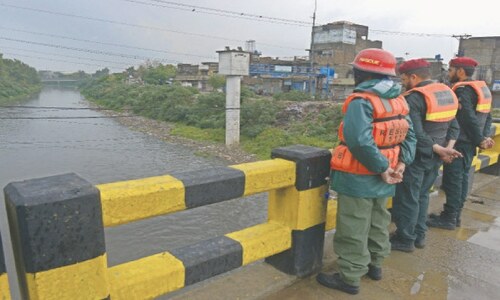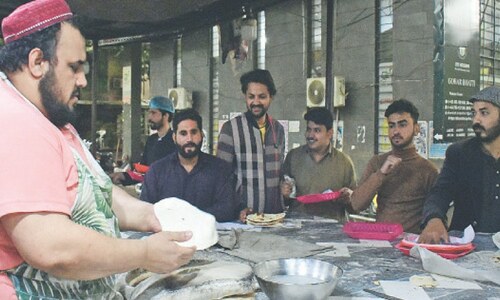Content is only half the story, the form is the other half. The writer explores the world of mother tongues, and why the form in which stories are told are just as important as the story itself.
LITERATURE has one main medium: language. And in addition, it has the content, the story. It is said that the most important is the story and the way it is told. And after that, we come to language. Most, if not all of us, master only one language well, the mother tongue. In this modern world with ‘globalised nomads’, some become bilingual from childhood, and in some cases, even multilingual.
In Europe, the ‘old world’, every country, some of them small, has one or several languages. Authorities and inhabitants are generally very particular about their language. To modernise and make changes in spelling and grammar, add new foreign words, and so, are series cultural decisions, watched over by linguistic and cultural experts and government councils.
In Norway, for example, the home country of one of the world’s greatest dramatists, Henrik Ibsen (1828-1906), the five million inhabitants have two written versions of their language. Sometimes, people say that Ibsen would have been even greater if his mother tongue had been English or another widely spoken language.
On the other hand, Norwegians themselves could not quite imagine Ibsen writing in any other language than Norwegian, and he might have lost artistic and content details if he had written in another language. And with the help of competent translators his theatre plays, such as ‘A Doll’s House’, ‘The Wild Duck’, ‘An Enemy of the People’, and so on, have been translated into English and dozens of other languages.
Cognitive psychologists and learning specialists tell us that children must learn in their mother tongue to be able to develop thorough understanding of concepts. It delays children’s development if they have to learn in another language, professor emeritus Birgit Brock-Utne at the Oslo University, has said again and again in her books.
She has through her career spent much time doing research and arguing for more use of local languages in developing countries, where the colonial masters’ languages are often used at the expense of the local languages. In East Africa, children should learn in Swahili, she has argued, and if they have another vernacular, that should be used at the initial school years.
“In Norway, we often speak dialects even in official meetings in the capital nowadays,” says Elin Gjaere, a school teacher by training.
“A generation ago, we thought we had to speak standard Norwegian to sound educated. Some major writers, too, use dialect in their books, but that may limit the readership,” Elin says as she is on her way back to Norway after several months of humanitarian aid work in Pakistan.
“However, in Pakistan, where English is an official language alongside Urdu, it is also important that some writers use English language, not only foreigners whose mother tongue is English, but also indigenous Pakistanis”, poet and lawyer Muzaffar Mumtaz says.
“But their English must be very good,” he adds.
“It shouldn’t be too complicated either because few readers are advanced in English any longer. Often, even university students and teachers are quite poor in English,” he says, himself having benefited from more than a decade of studies and work in Scotland.
“Many Pakistani writers write excellent English, though,” Ghani Jaffar says. He is an information director with an Islamabad research institute and has published literary and academic works in English and Urdu.
“There are several examples of good writers in English. Take, for example, Mohsin Hamid, who has just come with a new book in excellent English, or Mariam Asif. Parveen Malik is a top Punjabi writer”, he adds.
“Daniyal Mueenuddin is another writer who masters the English language well. He is a Pakistani alright, with and American mother and a Pakistani father, so he doesn’t quite fall into the category.”
“Many other Pakistani writers who write in English (or another foreign language) live abroad. They are sometimes referred to as ‘diaspora writers’. Many of them write excellent books. But they also belong to their own sub-group and should not always be seen as Pakistani writers, although some of them may well be.”
“But when foreigners in Islamabad and elsewhere in the country and abroad take the ‘diaspora writers’ to represent all Pakistani writers, I don’t think that is correct.”
“Likewise, foreigners who have lived in the country for many years, a generation or two, also belong to a separate category. They may have become quite Pakistani in many ways, and they may indeed write excellent literature, yet they are not typical Pakistani writers,” Ghani Jaffar says.
Poet Jocelyn-Ortt-Saeed is Australian-born, with a Pakistani husband and a lifetime of over forty years in the country. She has published seven books of acclaimed poetry.
“Since my husband was a sugar mill executive, I have had the opportunity to live in many places, mainly in Punjab. The constants in my life were my husband, six children and my poetry and teaching”, she says.
“I am glad to be in Islamabad this week at poetry readings. I have also listened to a new CD that has been made with a selection of my poems, with some music and songs by my daughter Maryam.”
“Maryam also edited my last book entitled ‘Distant Horizons’, supported by the Heinrich Boell Foundation, which recently moved from Lahore to Islamabad.”
“Although I believe that one can write prose in a second language, it is more difficult to write poetry in a foreign language. After all, the mother tongue is best when it comes to describing feelings, moods, beauty and so on. Even to translate poetry from one language to another is very difficult. It may even be better to re-write a poem and not just translate it, so that one can also be more true to the traditions of the other language in question.”
Muzaffar Mumtaz adds that a famous Nobel Prize Winner in Literature, who had written his poems in a small language, jokingly said that sometimes poems become better when they were translated or re-written.
Jocelyn adds: “I am of the opinion that poems sound best if read aloud in good English, with a clear and emotive voice. I am often asked to read my own poems at small and big gatherings. Sometimes, listeners tell me that the poems sound quite different when I read them than when they just read at home. And pupils in school classes ask me to read some of their favorite poems a second or even a third time during the same period.”
“I am very encouraged that young people like poetry”, Jocelyn says, “because I believe that without poetry a language dies, and deep cultural values are lost.”
“My most popular poem is called ‘Where no road goes’, and it is always appreciated when I read it. It is on my new CD, too”, Jocelyn Ortt-Saeed said in an advertising mood.
“I have lived longer in Pakistan than anywhere else in the world, but I feel truly at home in Pakistan. This is where my live is”, she says.
But when it comes to writing poetry, the language of my country of origin comes closer, and my mother tongue of English remains the instrument.”
“Yet, I think the content of my poems is more Pakistani and Australian, or perhaps, it is without any country borders, sometimes evidenced when I get letters and emails from readers on other continents.”














































Dear visitor, the comments section is undergoing an overhaul and will return soon.